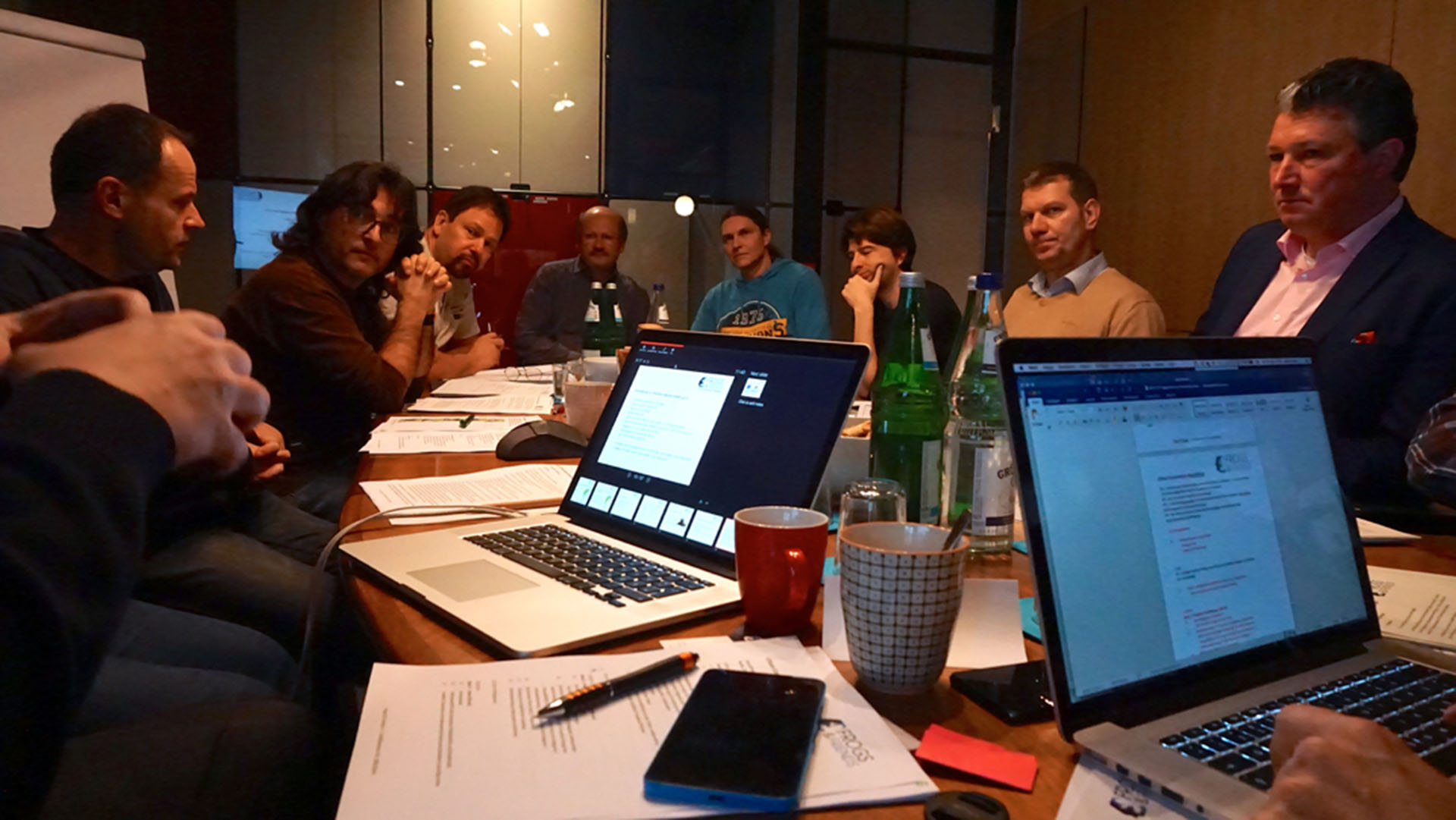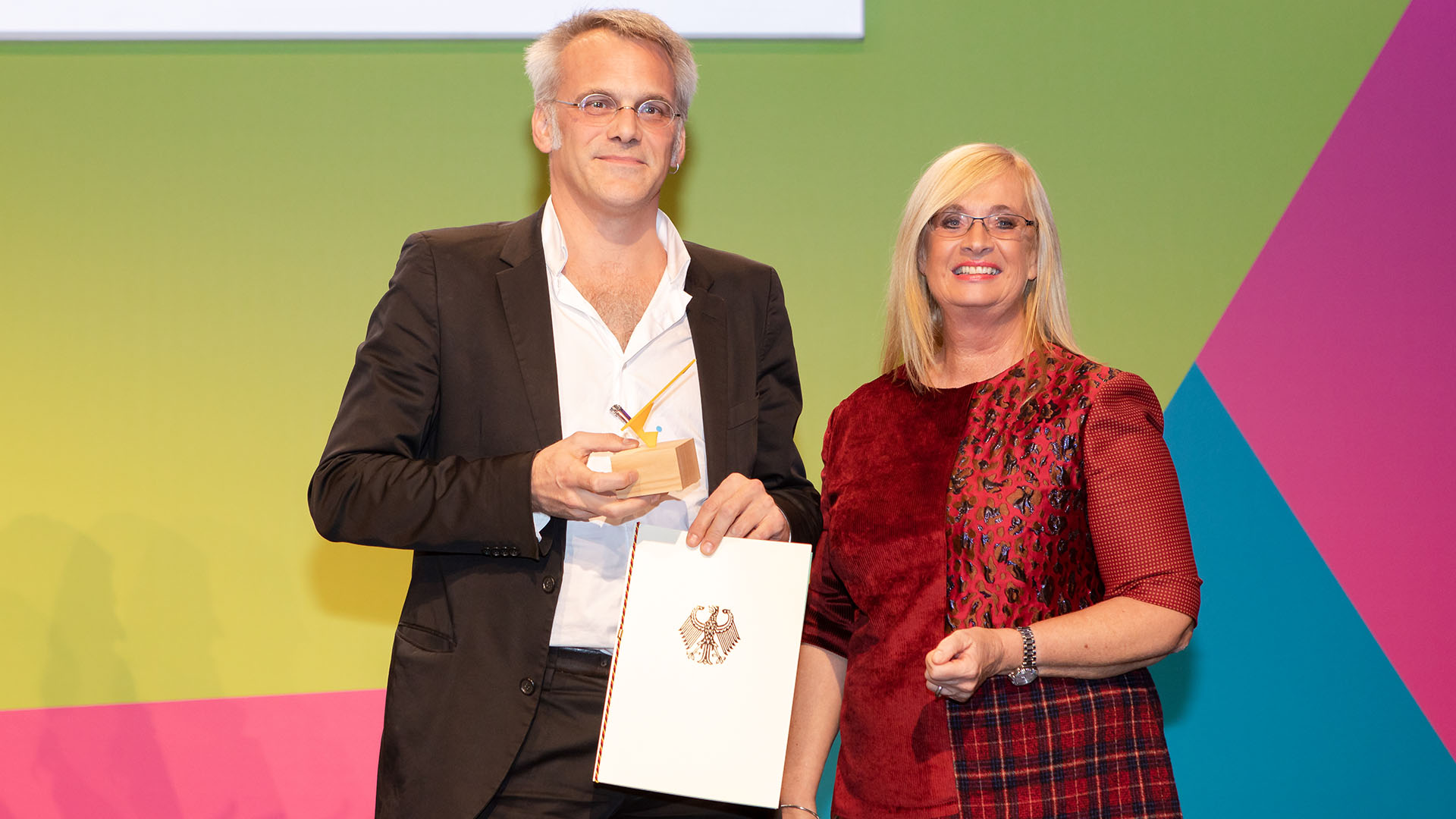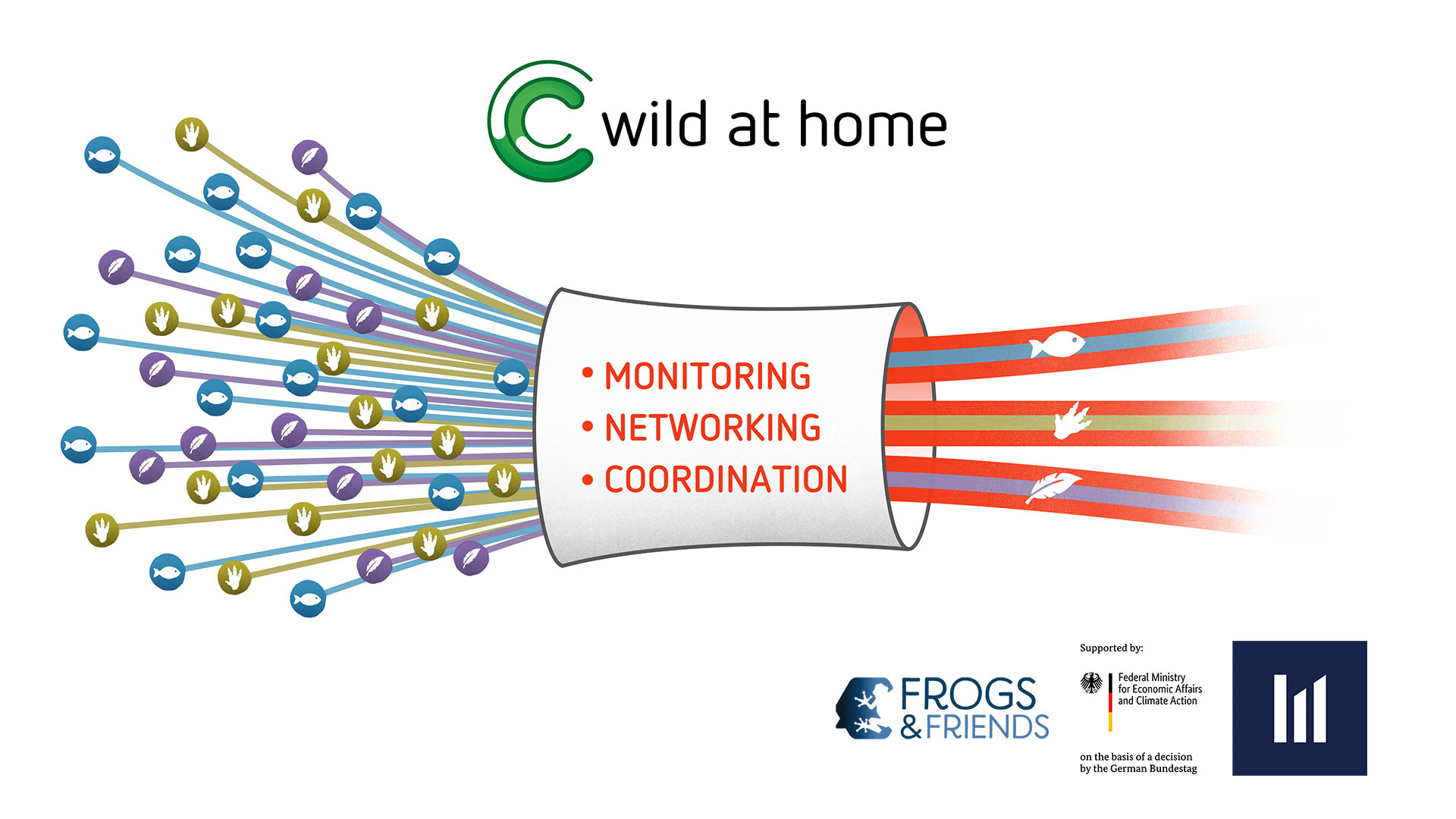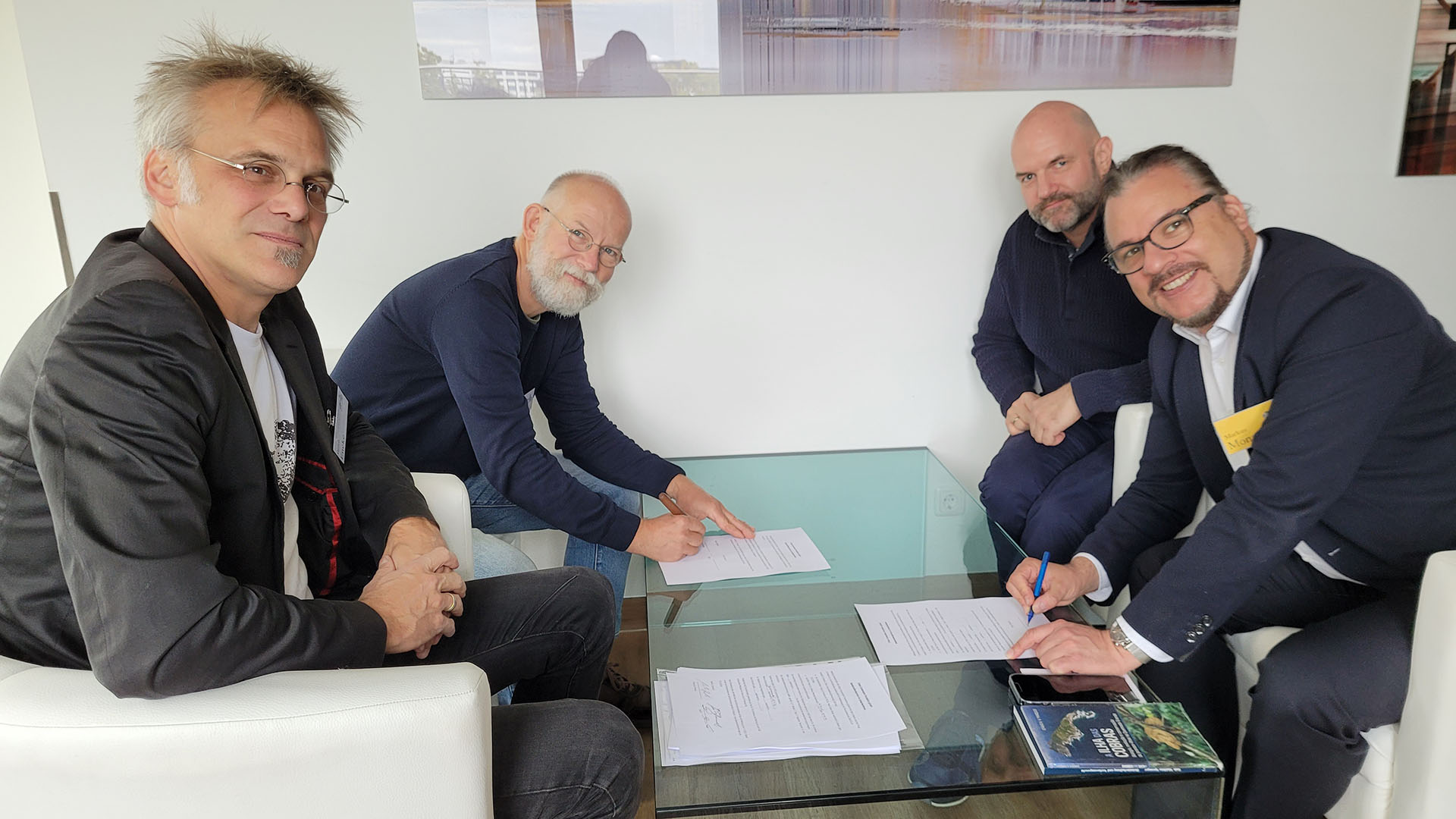The goal was clear from the start: Citizen Conservation wants to help save as many species as possible from extinction through conservation breeding in human care. The way to achieve this is already a promise in the name: Citizen Conservation are people who keep and breed endangered animals in their spare time to support the conservation efforts of zoos and other institutions. After all, the task of countering the biodiversity crisis with a countable contribution is too great for us to allow ourselves to do without the knowledge, enthusiasm and commitment of many private animal keepers.
Awarded species protection
Founded in 2014, the Frogs & Friends organisation, which sees itself as a kind of PR agency for amphibians and is made up of a diverse mix of experts from media, private wildlife keeping, zoos and science, was asked by the Verband der Zoologischen Gärten (Association of Zoological Gardens, VdZ) in 2017 for an idea of how private individuals who breed amphibians at home could be included in ex-situ species conservation projects for these animals together with professional institutions. Frogs & Friends then developed the CC concept and invited leading experts to a kick-off workshop in January 2018 to discuss its design and feasibility. The result of an intensive weekend: The venture should be taken!

The workshop participants formed the CC operational advisory board, which was tasked with steering the content of the project through a five-year pilot phase. Frogs & Friends, VdZ and the Deutsche Gesellschaft für Herpetologie und Terrarienkunde (German Society for Herpetology and Herpetoculture, DGHT) agreed in mid-2018 to provide basic funding for this pilot phase in order to test and optimise the ideas and processes of CC in practice using amphibians as an example. The mission was to establish professionally coordinated conservation breeding programs for endangered amphibian species in cooperation with institutions and private individuals. However, as the idea of the need to save species through ex situ husbandry requires social backing, CC was also intended to be a campaign “pro ex situ” in order to create an understanding among the wider public of both the dramatic nature of species extinction and the need to take countermeasures involving wild animal husbandry in human care.
CC’s concept was so convincing that the initiators Björn Encke and Heiko Werning were awarded the “Kultur- und Kreativpiloten Deutschland 2019” prize by the German government.

Official award presentation in 2019 to Björn Encke by Claudia Dörr-Voß, State Secretary at the Federal Ministry for Economic Affairs and Energy. © William Veeder
Kick-off with amphibians
Given the history and the people involved, it was only logical to start with amphibians. Frogs, toads, newts and salamanders are one of the most endangered groups of animals in the world, with 41% of the species at risk of extinction. And they have been significantly underrepresented in zoo animal husbandry to date, while there are many private individuals who have had great success in breeding these animals and have accumulated an impressive knowledge of them. In autumn 2018, the critically endangered Lake Patzcuaro Salamander were the first animals to move into the aquariums of CC participants, with four other amphibian species following soon after – a start had been made!
A start-up for species conservation to counter the escalating biodiversity crisis with visible and countable results.
Wild at Home
The tasks of the pilot phase also included the development of a practicable and efficient online population management system for the administration and coordination of CC participants and animals – no trivial matter given the complexity of the task and the number of individuals. The result should therefore be available to society as a whole beyond CC in order to create more transparency and efficiency in private wildlife management overall. Thanks to funding from the “IGP – Innovation Programme for Business Models and Pioneering Solutions“ of the Federal Ministry for Economic Affairs and Climate Action and the database specialist marmalade GmbH, the wildlife database “Wild at Home” was finally developed, the beta version of which went online in 2023 and will soon be available to all wildlife keepers after further expansion.

Monitoring, networking and coordination – all under one roof. Initiated as a project by Frogs & Friends, funded by the BMWK and supported by the IT agency marmalade. © Jonas Lieberknecht
Standing on our own two feet
The first breeding successes were already celebrated in the following year 2019. By the end of the pilot phase in 2022, CC participants were already looking after 1,382 animals from 15 species.
Another task of the pilot phase was to find a sustainable structure for CC so it could operate as an independent organisation in the future. The Citizen Conservation Foundation gGmbH was therefore founded in 2022. The previous project sponsors Frogs & Friends, VdZ and DGHT became shareholders of the non-profit limited company. The shareholders’ assembly appointed a supervisory board to oversee the fate of CC, with Dr Tim Schikora, Director of Schwerin Zoo, as its first chairman. The managing director of CC is Björn Encke, who oversees the CC office in Berlin. CC is advised on content by a scientific advisory board, whose specialist groups are dedicated to the individual animal groups. At the first advisory board meeting in the new organisational form in January 2023 in Berlin, an advisory board for fish and one for reptiles were established in addition to the amphibian advisory board. The first fish species had already been included in CC in 2020 in anticipation of this, with the first reptiles following in 2023.

Mark-Oliver Rödel (Chairman F&F, back left), Marco Schulz (President DTG, back right), Markus Monzel (Chairman DGHT, front right) and Björn Encke (Managing Director CC, front left) signing the partnership agreement at the DGHT Conference 2022 in Berlin.
The inclusion of further animal groups is planned for the future, as is increased geographical expansion outside the German-speaking region. This scaling, as well as the expansion of the portfolio of species cared for, is dependent on the financial resources available to CC. Supporting institutions are just as welcome as individual donors and, of course, other committed people who want to give a great hobby a deeper meaning with their voluntary wild animal husbandry and stand up to species extinction. Because keeping saves species!